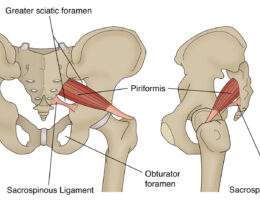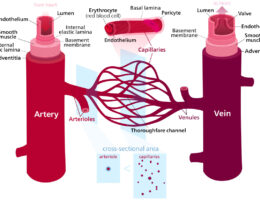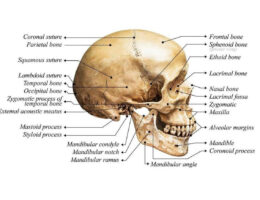Skip to content
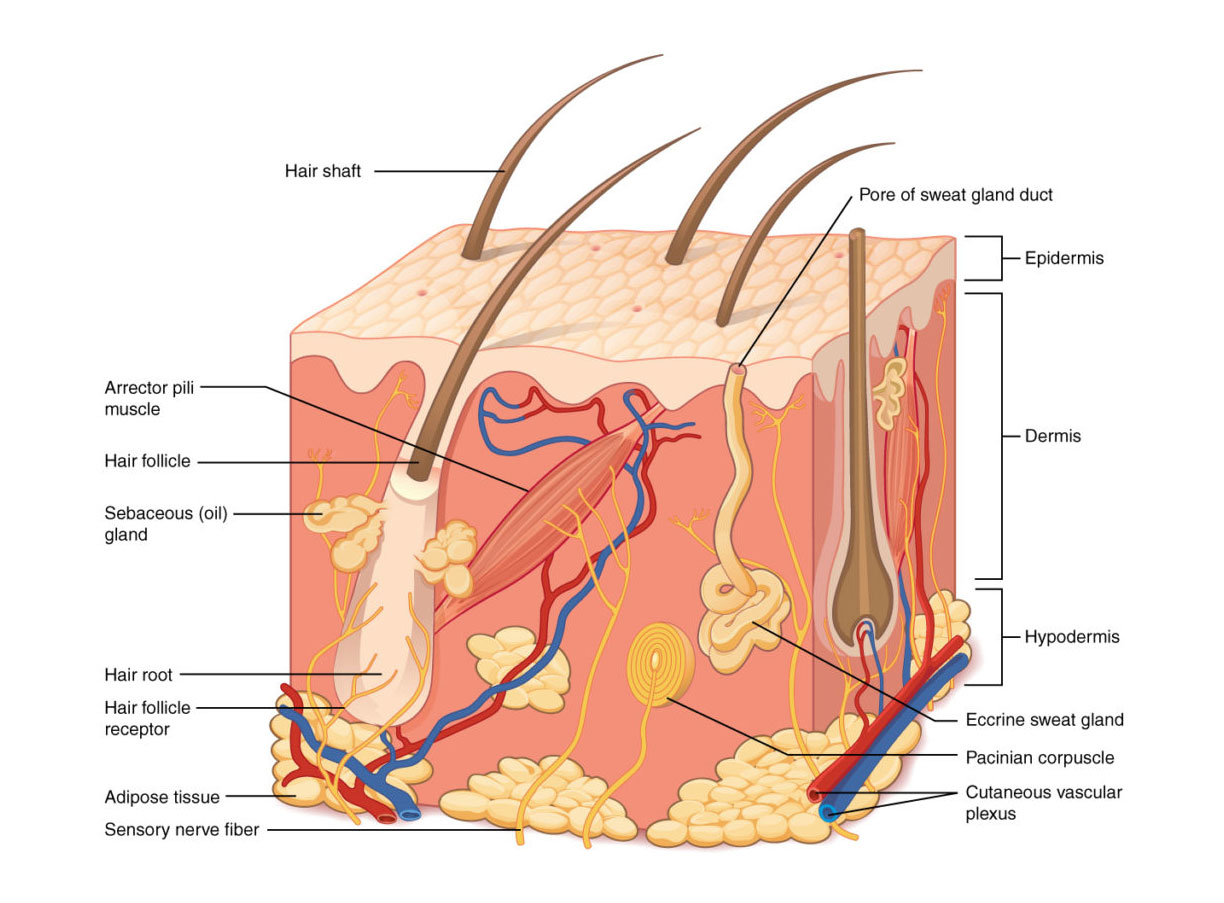
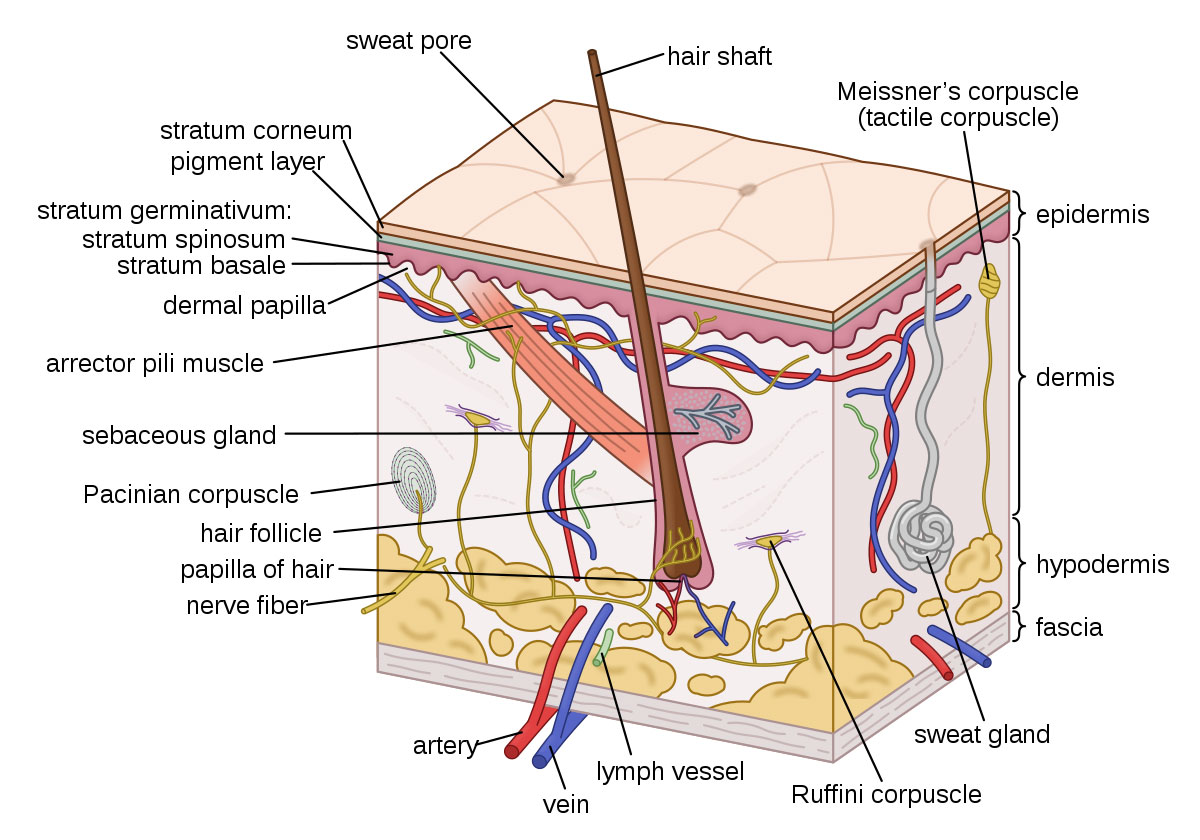
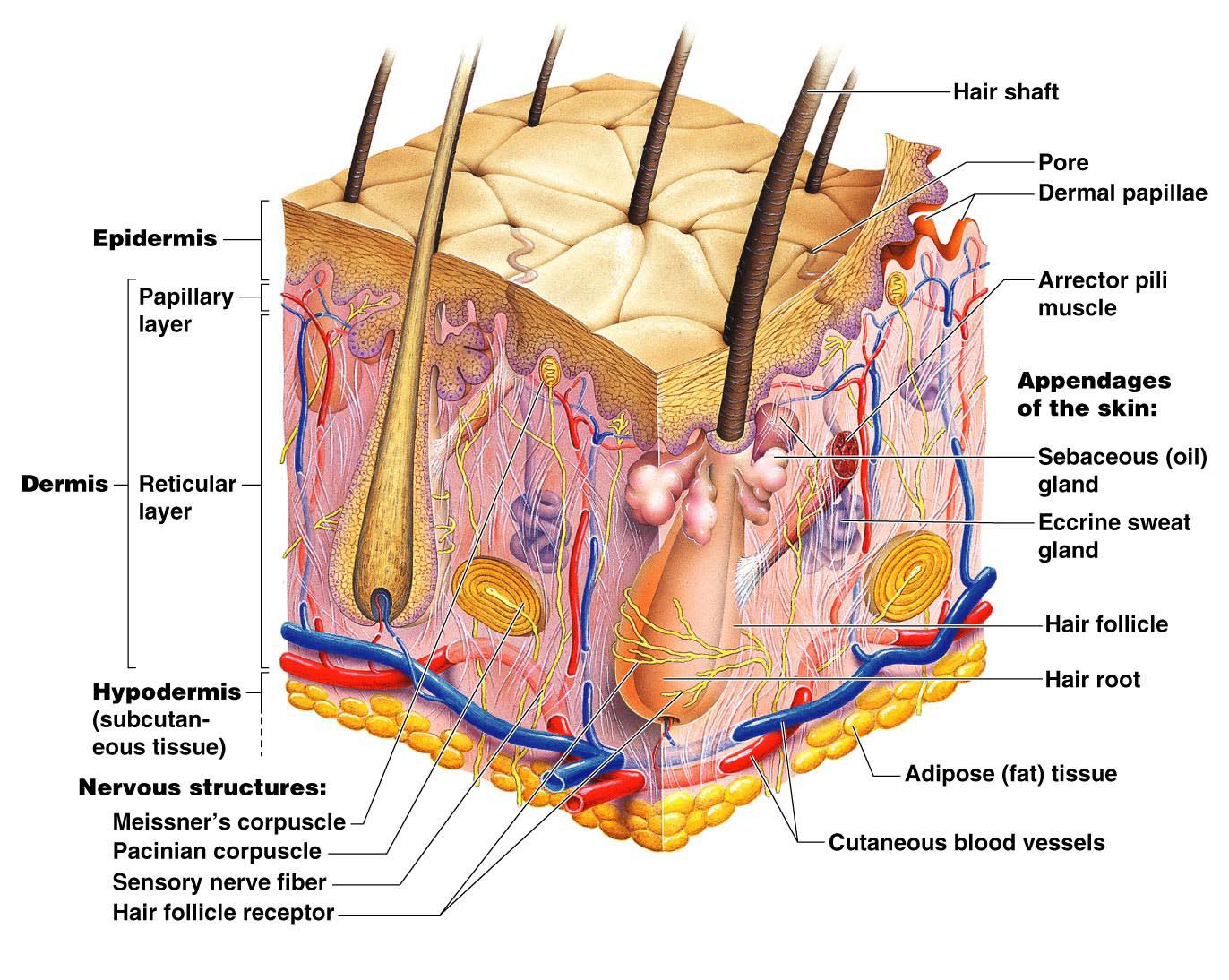
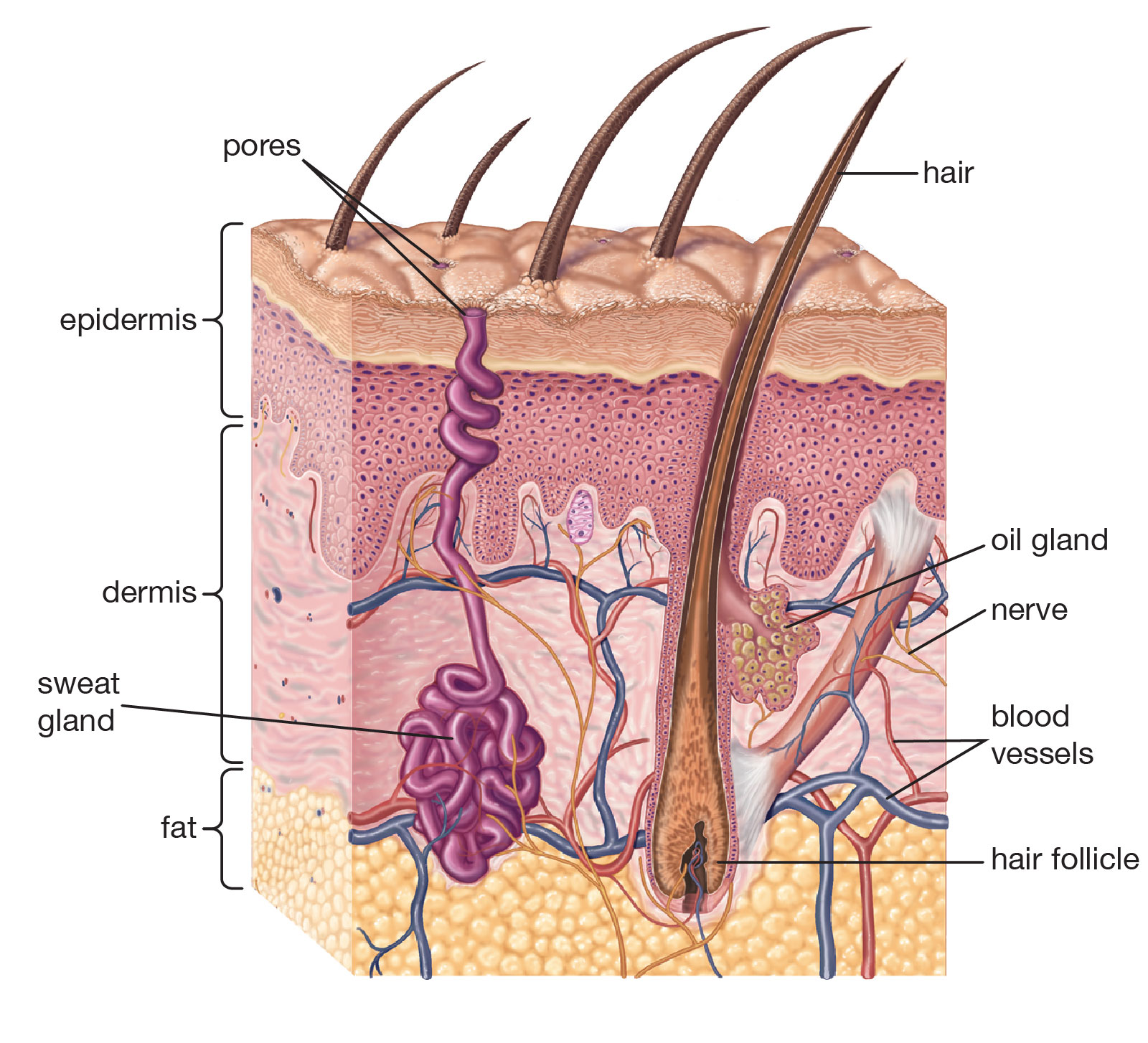
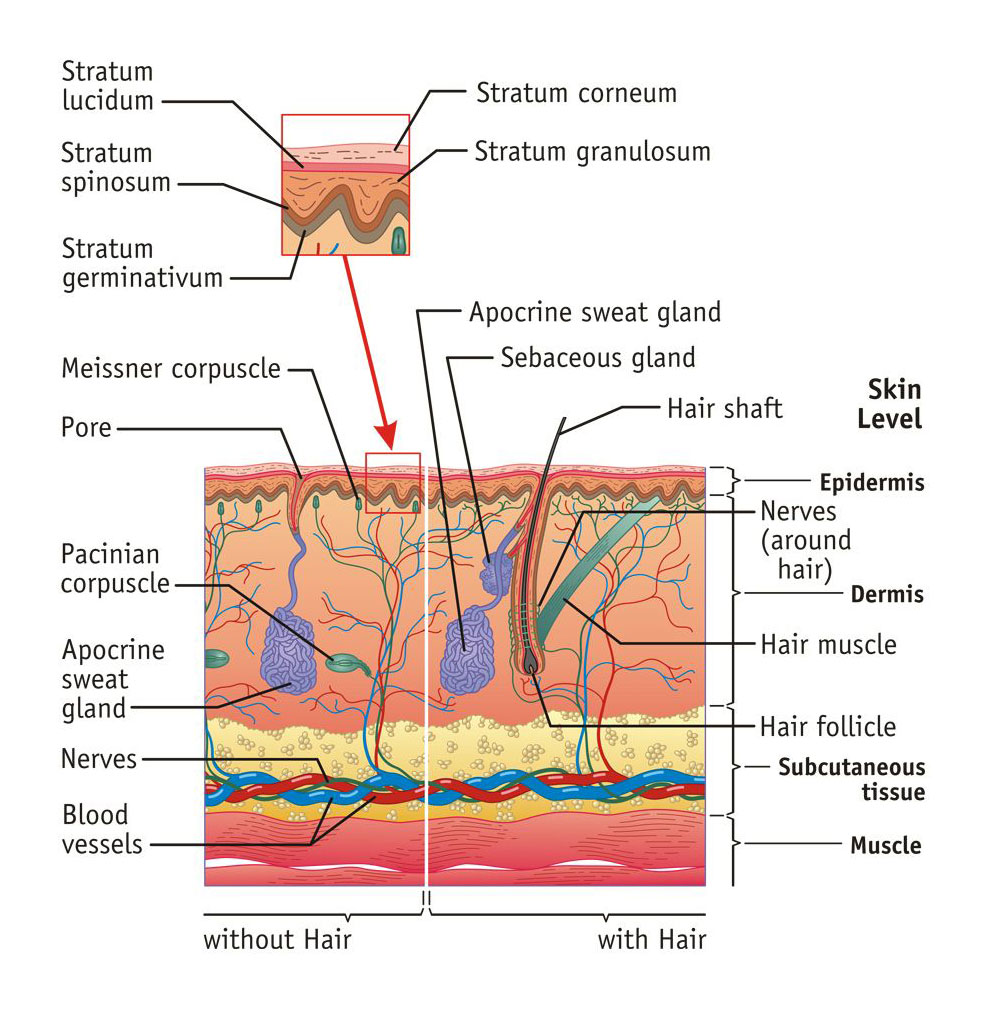
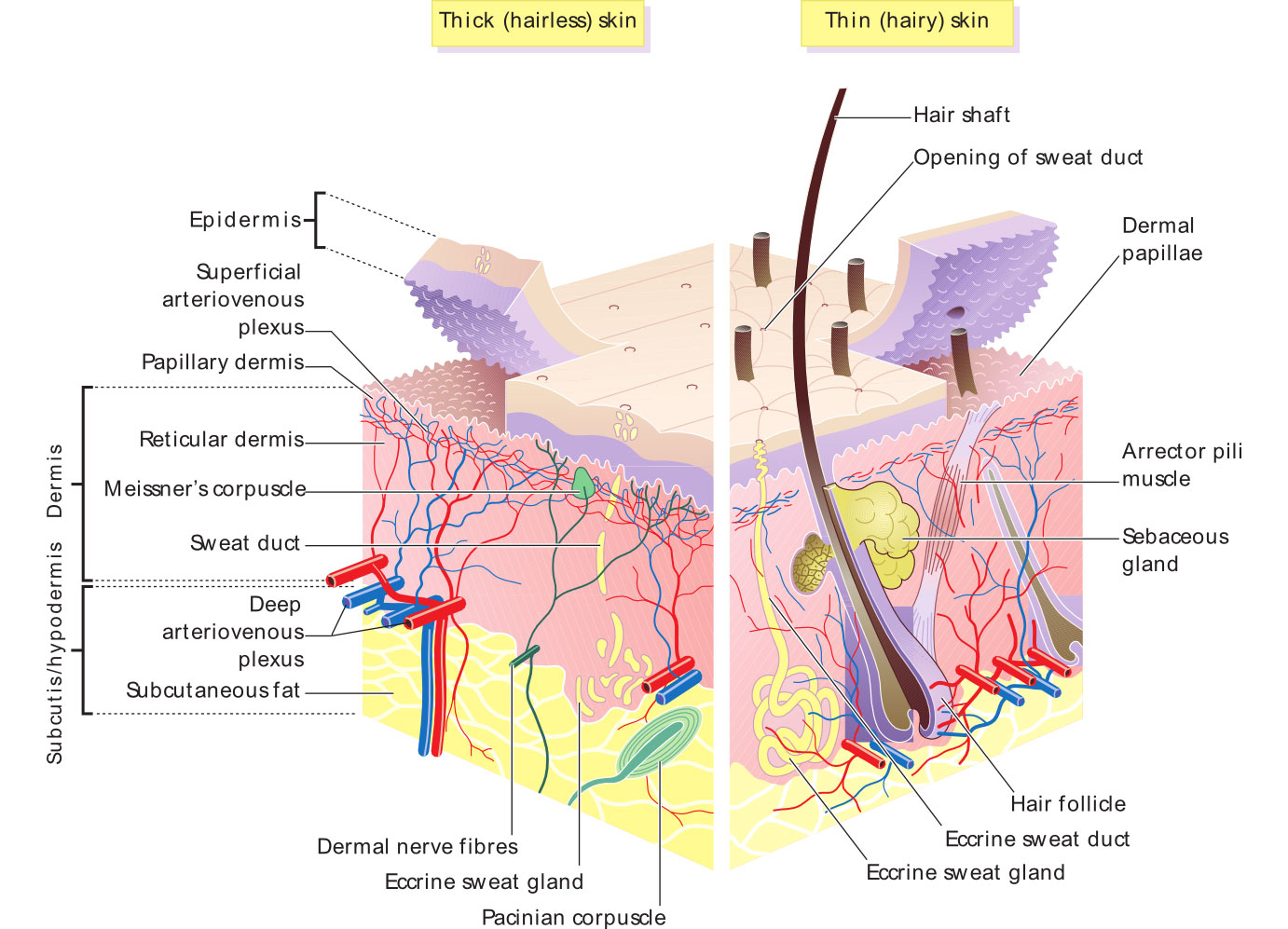
- Epidermis: The outermost layer of the skin that is made up of several layers of cells.
- Dermis: The middle layer of the skin that contains blood vessels, nerve endings, sweat glands, and hair follicles.
- Subcutaneous tissue: The deepest layer of the skin that contains fat and connective tissue.
- Hair follicle: A small sac in the dermis that produces hair.
- Arrector pili muscle: A tiny muscle that is attached to the hair follicle and causes the hair to stand up when it contracts.
- Sweat gland: A small gland in the dermis that produces sweat.
- Sebaceous gland: A small gland in the dermis that produces oil.
- Blood vessel: A tube-like structure that carries blood throughout the body.
- Nerve ending: A sensory receptor that responds to stimuli such as heat, cold, pressure, and pain.
- Hair shaft: The visible part of the hair that protrudes from the skin.
- Cuticle: The outermost layer of the hair shaft that protects the hair.
- Cortex: The middle layer of the hair shaft that gives the hair its strength and elasticity.
- Medulla: The innermost layer of the hair shaft that is made up of soft keratinocytes.
- Subcutaneous fat: A layer of fat located beneath the dermis that helps insulate the body and protects the organs.
You may also like these posts






